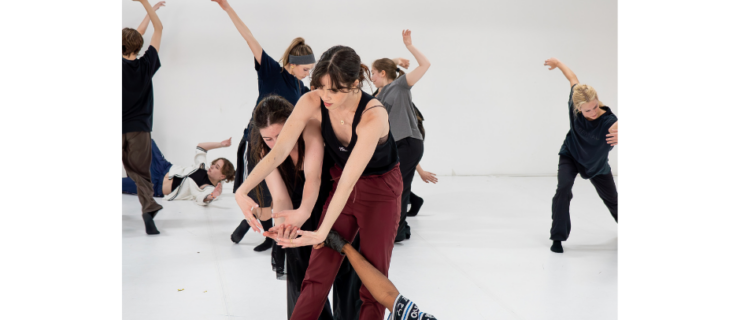Advice for Dancers
I’ve read your book,
Advice for Dancers, and I know you’ve done research on body image and eating disorders. I’d like to explore the differences between modern and ballet dancers in this area for my senior project at the University of South Florida. I’m having problems finding resources that focus directly on dancers. Can you point me in the right direction?
Christina Tidwell
Tampa, FL
It’s great you’re conducting research on dance. Check out the website of the International Association for Dance Medicine & Science (www.iadms.org). They offer valuable resources (for a small fee), such as the Dance Medicine & Science Bibliography, which lists references on every imaginable topic in dance medicine. If you join IADMS, you will also receive the quarterly Journal of Dance Medicine & Science. And you can order the annual Proceedings —or better yet—register for the meeting where the papers are given and talk with international dance medicine specialists. You might even submit your own work to be considered for possible presentation. That’s how I got started on my next career, while still performing with New York City Ballet. Compared to doing fouettés, it was a breeze!
I hate my dance school! One of my teachers picks on me for small mistakes, while ignoring her favorite students’ errors. I’ve lost my desire to work or even get out of bed. The rest of the teachers think I’m talented. What am I doing wrong?
Jenny
Austin, Texas
How about losing your perspective? You say the other teachers like your dancing, yet you’re letting one teacher affect your whole mood. I agree it’s hard to be singled out for mistakes while certain dancers are getting preferential treatment. However, it doesn’t mean that you’ve done anything wrong. So, please do not put your self-esteem on the line. Still, the situation does need to change. Here are some options: You could switch dance schools, ask to meet with your teacher to see if there is a way to make class more constructive, or use her comments to improve without taking them personally. Of course, if she is being abusive, then it’s time to lodge a complaint with the school’s director. But that’s a different story. Meanwhile, if you’re serious about having trouble getting out of bed, please seek help. You may be getting depressed.
Lately I’ve been feeling good about my body. It started when I sprained my ankle and had to stop dance class. I could only do physical therapy and Pilates. But for the first time I didn’t criticize myself or feel inferior to my friends. My greatest fear is that the bad feelings will come back once I go back to class.
Shaky Dancer
NYC
You’ve had the good fortune to see what it’s like when you turn off the negative voices in your head. Yet it’s easy to fall back into old habits, so you’re smart to think ahead. To keep the self-criticism and social comparisons at bay, you need to talk back. One way is to keep a stress diary, using the triple column technique. Note the situation where you feel bad (“Looking in the mirror), the automatic thought (“I’m a fat pig”), and the rational thought to counter it based on facts, logic, and reason (“No one told me I have a weight problem. I’m just being hard on myself.”). Then, focus your attention on something useful, such as your placement or moving to the music. When all is said and done, we become dancers because we love to move. It’s okay to enjoy yourself. So when it’s time to go back, choose a class that you know you’ll love dancing in.
Are artificial sweeteners bad for you? I’m not a health nut but my mother thinks I drink too much diet soda. I disagree. I eat a variety of foods, don’t skip meals, and even eat vegetables. Sometimes, I go overboard and eat too much. But that’s why I stay away from sugar. What’s the problem?
Robert
Los Angeles, CA
I know people who have strong beliefs about the dangers of food products such as Splenda, NutraSweet, Equal, and Sweet’n Low. I’m not aware of any real science to back this up. I see it more as a personal choice. However, preliminary research at Purdue University in 2004 suggests that artificial sweeteners may rev up your appetite, causing you to overeat. A study presented at the American Diabetes Association meeting in 2005 also showed that the risk of becoming overweight rises 65 percent for every diet soda we add to our daily intake. Dieters often turn to artificial sweeteners to satisfy their sweet tooth only to find themselves craving cookies. So beware if you start heading for the kitchen on a midnight raid. Other liquid options include low-fat milk, juice (in moderation), and at least eight glasses of water a day to keep you well-hydrated. When in doubt, you can fine-tune your eating by seeing a nutritionist who works with dancers or athletes.
Former New York City Ballet dancer Linda Hamilton, Ph.D., is a lecturer, a psychologist in private practicem and the author of
Advice for Dancers (Jossey-Bass). She has been offering advice to Dance Magazine readers since 1992.




